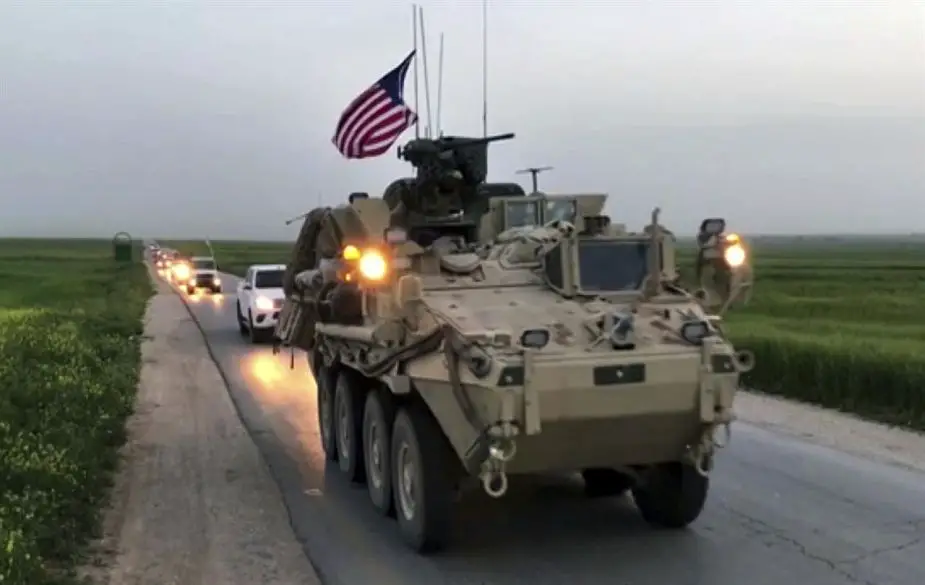Breaking news
U.S. and coalition forces will continue to fight ISIS in Syria.
The situation in Syria is much more complex than in Iraq, Army Gen. Joseph L. Votel, commander of U.S. Central Command, said on 3 April at the U.S. Institute of Peace. Why? Because more factors are present there: Russia, the Assad regime, Iran, Turkey, Kurd movements, the United States and coalition forces are all involved there, Votel said.

April 28, 2017 print screen from video footage, showing U.S. forces patrolling on a rural road in the village of Darbasiyah, in northern Syria.
More than 90 percent of the caliphate ISIS claimed in Syria, particularly in the north and eastern portions of the country, have been liberated, the general said. But ISIS is still present, and U.S. and coalition forces will have to continue to operate on that front, he said.
As the threat of ISIS has diminished, many underlying challenges are coming to the forefront, Votel added.
"We are going to have to continue to look at the ways we keep pressure on ISIS and continue to develop mechanisms on the ground that help de-escalate the situations that continue to arise so they can be addressed through discussion and diplomacy, as opposed to fighting," he said.
Hard work remains, the CENTCOM commander said, such as stabilizing areas, consolidating gains, getting people back into their homes, and addressing the long-term issues of reconstruction.
Votel emphasized the importance of the "By, With and Through" approach that the United States and the coalition have taken, not just militarily, but in different ways.
This represents a different approach from how it's been done in Iraq and across the region in the past, Votel said. It puts the onus on partners to develop local solutions to largely local problems, and that puts the onus on them to own the results, he explained.
The general said he sees the approach happening across the region, and that the new approach is well-received. "We did not try to do the fighting for them," he said. "We tried to enable them, we tried to advise them and give them the benefit of our experience. I think that largely paid off, and I think as we look across the region now, we look to kind of the approach that we're putting in place in Afghanistan. I think this is reflective of that.
"We certainly are drawing on all of our great capabilities, our ability to bring superior air power into this -- our linkage with development and diplomacy here is a key aspect of this, of course -- but I think as I look across the region this is kind of the way we will operate in the future," Votel continued. "I think it allows us to accomplish our objectives, but yet it also allows our partners on the ground to accomplish theirs as well. So I think this 'By, With and Through' is a big lesson."


























